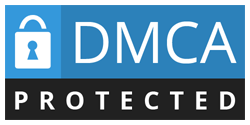Lecithin is a term for a group of yellow fat. Lecithin usually contains phospholipid groups, which are the main structural and functional components of cell membranes in all animals and plants and are important for the normal functioning of the brain, blood, nerves, and other tissues in the body. Lecithin can be found in many foods. Commercial preparations of lecithin are usually made from egg yolks, soy, or animal sources. Lecithin is also used for many health benefits, such as producing eye drops (to help eye drops stick to the cornea), or as an emulsifier in food products (to keep ingredients from separating) as a skin moisturizer…


1. Types of Lecithin
✅ Lecithin supplements are usually derived from sunflower seeds, eggs, or soy. Soy is by far the most commonly used ingredient to take lecithin supplements. Animal fats, fish, and corn are also sometimes used.
✅ While soy lecithin tends to come in capsule form, you can also buy sunflower lecithin in both powder and liquid form. Sunflower lecithin is not common, but some people like it, especially if they are trying to avoid genetically modified organisms (GMOs) in their food. While soybeans are sometimes genetically modified in mass production, sunflower seeds are not. The extraction process is also softer for sunflower lecithin. Extract lecithin from sunflower seeds without strong chemicals.
2. Top Lecithin health benefits
2.1 Lecithin health benefits: Reduce cholesterol


✅ The biggest benefit of lecithin is its ability to lower cholesterol. Researchers have found that soy lecithin can contribute to raising HDL (good) cholesterol and lowering LDL (bad) cholesterol in the blood. A 2010 study found that soy lecithin supplements, provided daily, in a 500 mg capsule, helped reduce total cholesterol by 42%. LDL cholesterol (bad cholesterol) decreased by 56.15% after two months of using lecithin. Therefore, soy-based lecithin may improve heart health, especially if you are already at risk for high blood pressure or heart disease.
2.2 Lecithin health benefits: Help improve digestion


✅ Ulcerative colitis is an inflammatory disease that affects the intestine; It is also called inflammatory bowel disease (IBD). In colitis, there is a significant decrease in phosphatidylcholine content (a chemical found in lecithin). Lecithin derivatives phosphatidylcholine accounts for more than 70% of the total fat found in the mucus layer that covers the inner surface of the intestine. This layer serves as a protective barrier that helps maintain the digestive tract from bacteria.
✅ Lecithin has been tested in people with ulcerative colitis to improve their digestion. The emulsifying quality of lecithin contributes to the improvement of mucus in your intestines, making digestion easier, and reducing ulcerative colitis. Even if you don’t have ulcerative colitis, you can consider using lecithin if you have irritable bowel syndrome or another condition that affects your digestive process.
2.3 Lecithin health benefits: Treatment of Alzheimer’s disease and enhanced cognitive function


✅ Choline (an active ingredient available in lecithin) is thought to improve cognitive function in people with Alzheimer’s and other types of dementia. Studies have suggested that a choline-rich diet can lead to sharper memory and help people with Alzheimer’s. Phosphatidylserine (from soy lecithin) mixed with phosphatidic acid improved memory, mood, and thinking ability in a 3-month study (DB-PCT) of 72 elderly patients. The mixture also showed improvement in daily function, mood, and general condition in a different 2-month study (DB-PCT) of 56 Alzheimer’s patients. Studies on this benefit of lecithin may be promising. However, more complete studies are needed to confirm this effect.
2.4 Lecithin health benefits: Other benefits


- Soothing and moisturizing for skin: Lecithin is included in some skincare products. It is used as a skin emollient, making the skin feel smooth by restoring hydration (preventing skin dehydration). Taking lecithin capsules can theoretically improve your skin.
- Lecithin may protect the liver: The liver is the production site for bile. When bile concentrations are too high, bile salts can destroy cells by digesting their fat cell membranes. Lecithin can bind and reduce bile salt concentration, protecting cells from damage. Mice had less liver damage when they took a soy lecithin diet.
3. Foods that contain Lecithin


Lecithin is found in many foods, including:
- Organ meats (such as liver)
- Red meat
- Seafood
- Egg
- Sunflower seed
- Wheat germ
- Canola oil
- Green vegetables (such as broccoli and Brussels sprouts)
- Legumes (such as black beans, kidney beans, and soy)
4. Notes when using Lecithin
- Although lecithin is generally considered safe for most people, it has not been thoroughly tested by the U.S. Food and Drug Administration (FDA) for its safety, purity, or effectiveness. Therefore, it is important to consult your healthcare provider before taking lecithin. Users of lecithin should be aware of dosage recommendations and should not exceed 5,000 milligrams daily.
- Possible side effects include Increased salivation, decreased appetite, diarrhea, nausea, allergic reactions. Although many people may be concerned about soy lecithin due to soy allergies, according to a report published by the University of Nebraska’s Food Allergy Research and Resources Program (FARRP), the risk of allergy to soy lecithin may be minimal.
- Women who are breastfeeding, pregnant should avoid using lecithin because there are not enough research results to support the safe use of lecithin during pregnancy or for babies.
- Children should not use lecithin, because there is not enough medical research to ensure safety for the use of lecithin for children.
Recommended for you
🎁 NOW Supplemnets, Lecithin 1200 mg with naturally occurring Phosphatidyl Choline


✅ Since 1968 NOW has been a leader in the natural products industry. Even when healthy foods and natural supplements weren’t mainstream, we’ve never wavered from our mission – to provide value in products and services that empower people to lead healthier lives.
✅ NOW Sunflower Lecithin has Phosphatidyl Choline, the most abundant phospholipid in the cell membrane, where it plays a key role in cellular signaling and synaptic function. NOW Sunflower Lecithin also naturally abounds in Phosphatidyl Inositol, Phosphatidyl Ethanolamine, and essential fatty acids. Lecithin in the diet aids in emulsifying fats, enabling them to be dispersed in water; and as a choline-containing phospholipid, its choline is easily absorbed and utilized by the body. NOW Sunflower Lecithin Softgels are Non-GMO and Soy-Free. Directions: Take 2 soft gels daily with food.






Leave a Reply